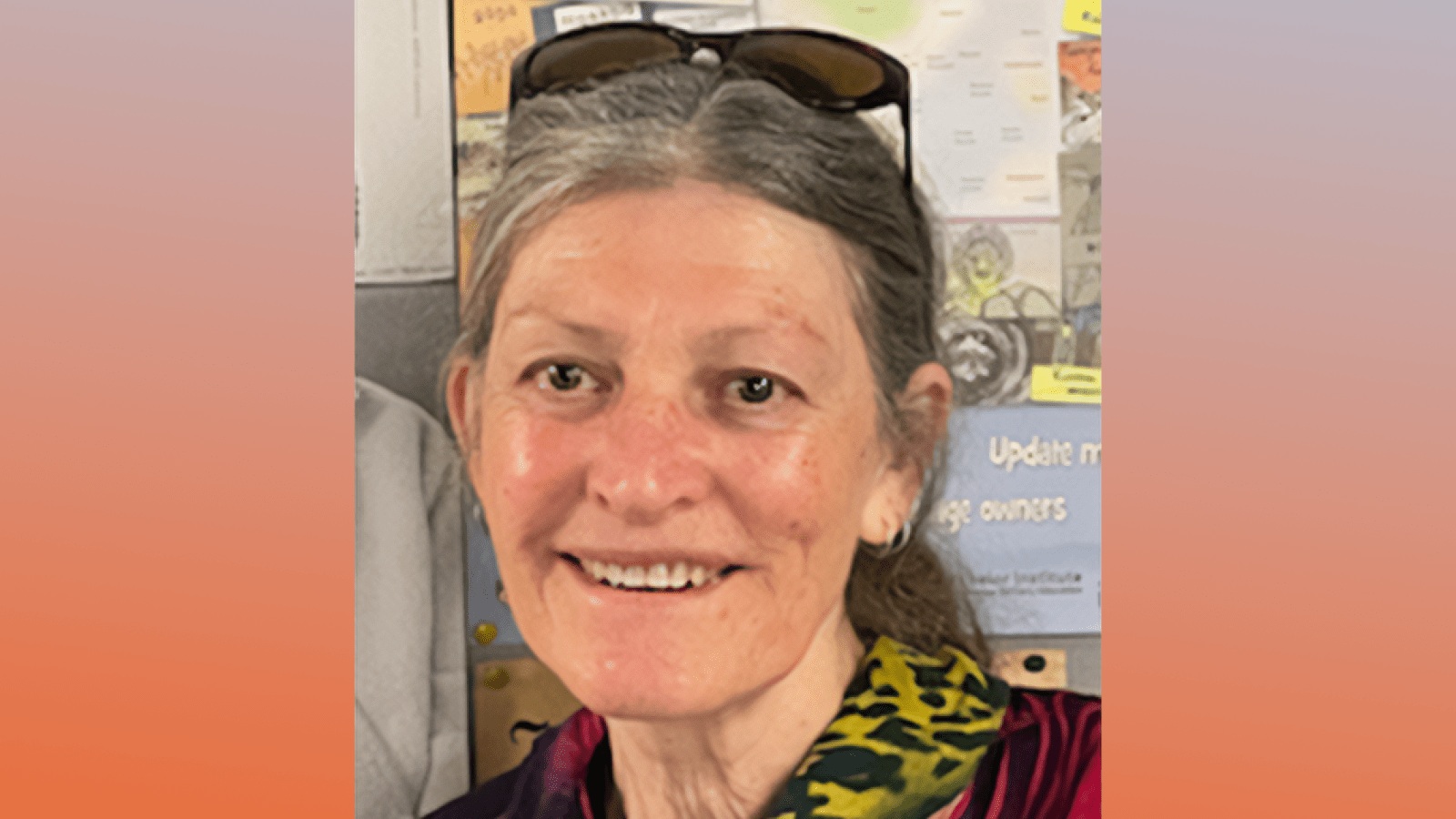CASS Researcher Dr. Denise Angelo receives Penny McKay Memorial Award

Dr. Denise Angelo, a PhD researcher in linguistics at the Australian National University, has been awarded the Penny McKay Memorial Award (2022) for the most outstanding thesis submitted at an Australian University in the preceding academic year on aspects of school-based second/additional language education in Australia. The award recognises outstanding work in the field of language and literacy research in Australia.
Happily surprised at the honour, Dr. Angelo remarked,“It was really lovely. I wasn’t really expecting it… I got a nice letter from the judges and they said that it was a unanimous decision.”
Dr. Angelo's PhD research focused on understanding the modern language landscape of Australia, with a particular emphasis on Indigenous languages and the place of contact languages. She has worked for many decades with Indigenous communities across Australia, prompting her to provide a clearer picture of the intricate tapestry of languages spoken across the nation and the need for matching language-informed teaching and learning approaches and communication services.
In her thesis titled, 'Countering misrecognition of Indigenous contact languages and their ecologies in Australia,' she argues that acknowledging and respecting contact languages should lead to improved outcomes for Indigenous communities who do not speak English as their first language and who are working to revive their traditional languages too. “I think there's an assumption that Aboriginal and Torres Strait Islander people mostly speak English, or else otherwise a traditional language. But in actual fact, the story is a little bit more complicated, because we have all these contact languages, like creoles and mixed languages too.”She says.
After completing her 563 page thesis by a compilation of publications, some co-authored with Indigenous colleagues, and also academic researchers and/or teachers, and reflecting on the current state of voices heard in Australia, Dr. Angelo points out the mountain of work that lies ahead.
“I think we’re still in the beginning stages of thinking about the role of languages and our language wealth in this country –for Aboriginal and Torres Strait Islander languages and overseas languages too– and being able to see how monolingual our attitudes generally are. I really thought that we might change, when we had COVID and people actually spoke about getting messages across clearly. We were talking about how some groups weren't well informed, and how it was because of languages and translations. I thought we were getting somewhere for a bit, because a lot of people were galvanised into action but it’s dropped off the radar again. So I think my biggest reflection is, we've got a way to go, but we can do it.”
During her doctoral studies, Dr. Angelo also undertook significant work beyond her thesis. She was the lead author on the Well-being and Indigenous Languages report (2019), commissioned by the Office for the Arts, contributed to the National Indigenous Languages Report (2020) and the OECD commissioned report, Learning in Indigenous Languages: Common Ground, Diverse Pathways (2022).
Dr. Angelo was also active in supporting and encouraging teachers across Australia who work with children speaking Indigenous languages. She ran a regular voluntary online teacher café and worked with Indigenous teachers of traditional languages undertaking the Master of Indigenous Language Education program at the University of Sydney. She also worked with teachers of Indigenous students who are English language learners in Queensland schools. Dr. Angelo's commitment to Indigenous language education extends beyond academia and schools. She worked with Aboriginal women from Binjari community in the NT to produce a suite of nine Kriol-English books with the Indigenous Literacy Foundation. This includes the highly successful 'Moli det bigibigi,' (Molly the pig) which has been widely sold in mainstream outlets. It was the first Aboriginal language book ever to be selected for the National Reading Hour and has attained the largest print run ever of a bilingual Indigenous book. This work has made a significant contribution to understanding and responding to the linguistic diversity amongst Aboriginal and Torres Strait Islander peoples.
In recognition of her exceptional contributions to the field of linguistics, Dr. Angelo has been awarded a cash prize of $500. Additionally, she has been granted the funded opportunity to present on an aspect of her research at an upcoming ALAA, ACTA or ALTAANZ conference. Dr. Angelo hopes to use this opportunity to organise a symposium at this year’s ALAA conference that includes Indigenous co-researchers to highlight their language work.
Currently, she is collaborating with Indigenous co-researchers and colleagues on an ARC-funded project. The goal being to describe their language ecologies, so which languages are being spoken as a main language and which are being learned in addition and how these are woven into daily life. The goal is to promote a deeper appreciation for the diverse configurations of contemporary Indigenous multilingualism, the different strengths and challenges in each context, and identify the best methods for supporting the language aspirations and needs of different communities. This work aims to contribute to a better understanding of multilingualism in Australia, the benefits, and rights. Dr. Angelo's dedication to her research and commitment to Indigenous language education have earned her well-deserved recognition in the form of the Penny McKay award.